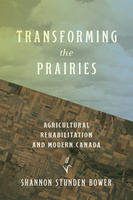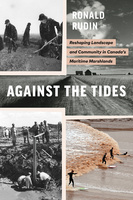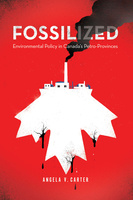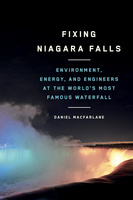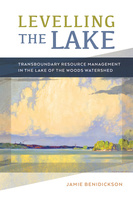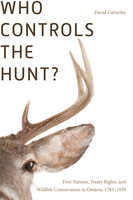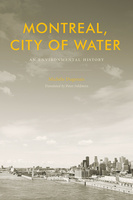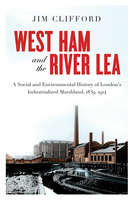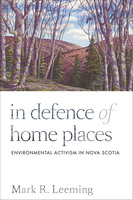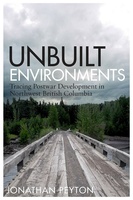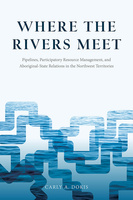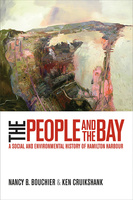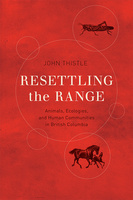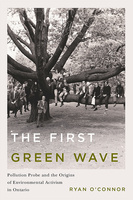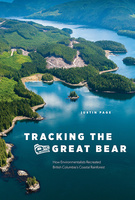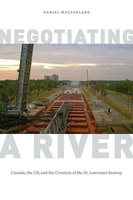Nature | History | Society

Series editor: Graeme Wynn
Nature | History | Society is a series devoted to the publication of high-quality scholarship in environmental history and allied fields. Its broad compass is signaled by its title: "Nature" because it takes the natural world seriously; "History" because it aims to foster work that has temporal depth; and "Society" because its essential concern is with the interface between nature and society. The series is avowedly interdisciplinary and features the work of anthropologists, ecologists, historians, geographers, literary scholars, political scientists, sociologists, and others whose interests resonate with its mandate. It offers a timely outlet for lively, innovative, and well-written work on the interactions of people and nature through time in North America.
Transforming the Prairies
Agricultural Rehabilitation and Modern Canada
Transforming the Prairies critically reassesses Canada’s Prairie Farm Rehabilitation Administration in light of its involvement in ecological changes and its role in consolidating colonialism and racism.
Making Muskoka
Tourism, Rural Identity, and Sustainability, 1870–1920
Making Muskoka traces the first decades of Muskoka’s transformation from Indigenous homeland to a part-time playground for tourists and cottagers and uncovers the consequences for those who lived there year-round.
Against the Tides
Reshaping Landscape and Community in Canada’s Maritime Marshlands
Against the Tides tells the compelling story of the rehabilitation of the Maritime marshlands, a project that reshaped not only the landscape of the Bay of Fundy region but the communities that depended on it.
The Government of Natural Resources
Science, Territory, and State Power in Quebec, 1867–1939
The Government of Natural Resources is a revealing look at how science can extend state power through territorial and environmental transformations.
Fossilized
Environmental Policy in Canada's Petro-Provinces
Fossilized reveals how Alberta, Saskatchewan, and Newfoundland and Labrador – blinded by exceptional economic growth from 2005 to 2015 – undermined environmental policies to intensify ecologically detrimental extreme oil extraction.
Fixing Niagara Falls
Environment, Energy, and Engineers at the World’s Most Famous Waterfall
Long considered a natural wonder, the world’s most famous waterfall is anything but. Fixing Niagara Falls reveals the engineering and politics behind the transformation of Niagara Falls.
Levelling the Lake
Transboundary Resource Management in the Lake of the Woods Watershed
It’s one thing to live in a watershed. We all do. It’s another to manage one, as Levelling the Lake compellingly demonstrates.
Who Controls the Hunt?
First Nations, Treaty Rights, and Wildlife Conservation in Ontario, 1783-1939
Tracing the connections between colonialism and the early conservation movement in Ontario, Who Controls the Hunt? examines the contentious issue of treaty hunting rights and the impact of conservation laws on First Nations.
Montreal, City of Water
An Environmental History
Montreal, City of Water investigates the development of the city over two centuries, tracing the relationship between the city’s inhabitants and the waterways that ring its island and flow beneath it in underground networks.
West Ham and the River Lea
A Social and Environmental History of London’s Industrialized Marshland, 1839–1914
This original account of industrial London’s expansion into West Ham’s suburban marshlands highlights how pollution, poverty, and water shortages fuelled social democracy in Greater London.
In Defence of Home Places
Environmental Activism in Nova Scotia
In Defence of Home Places examines the diversity of environmental activism in Nova Scotia, placing its early social and legislative successes and eventual weakening and division within a national and international framework.
Unbuilt Environments
Tracing Postwar Development in Northwest British Columbia
This book looks at the long-term social and environmental effects of imagined, abandoned, and failed resource-development schemes in northwest British Columbia.
Where the Rivers Meet
Pipelines, Participatory Resource Management, and Aboriginal-State Relations in the Northwest Territories
An examination of Sahtu Dene participation in the assessment of the Mackenzie Gas pipeline and other resource extraction projects, this book provides an in-depth account of the workings and effects of participatory environmental assessment in the Canadian North and its implications for the legitimization of resource co-management.
The People and the Bay
A Social and Environmental History of Hamilton Harbour
This engaging history brings to life the personalities and power struggles that shaped how Hamiltonians used their harbour and, in the process, invites readers to consider how moral and political choices being made about the natural world today will shape the cities of tomorrow.
A Town Called Asbestos
Environmental Contamination, Health, and Resilience in a Resource Community
In A Town Called Asbestos, a mining town’s proud and painful history is unearthed to reveal the challenges a small resource community faced in a globalized world.
Resettling the Range
Animals, Ecologies, and Human Communities in British Columbia
This unconventional history looks at the resettlement of interior British Columbia from the perspective of campaigns to exterminate grasshoppers and wild horses, creatures considered by some to be pests.
The First Green Wave
Pollution Probe and the Origins of Environmental Activism in Ontario
The First Green Wave examines the origins and development of first wave environmental activism (1967-86) in Toronto, home to one of Canada’s earliest and most dynamic communities of environmentalists.
Tracking the Great Bear
How Environmentalists Recreated British Columbia’s Coastal Rainforest
A detailed account of the complex and contested process that resulted in the establishment of the Great Bear Rainforest in coastal British Columbia.
Negotiating a River
Canada, the US, and the Creation of the St. Lawrence Seaway
A revealing look at the planning and building of the St. Lawrence Seaway and Power Project -- a megaproject that had a profound impact on North American history.
Power from the North
Territory, Identity, and the Culture of Hydroelectricity in Quebec
This book explores how French Canada’s aspirations migrated north with natural resource development, creating a culture of hydroelectricity that continues to shape territorial planning and relations with Aboriginal peoples in the province.

